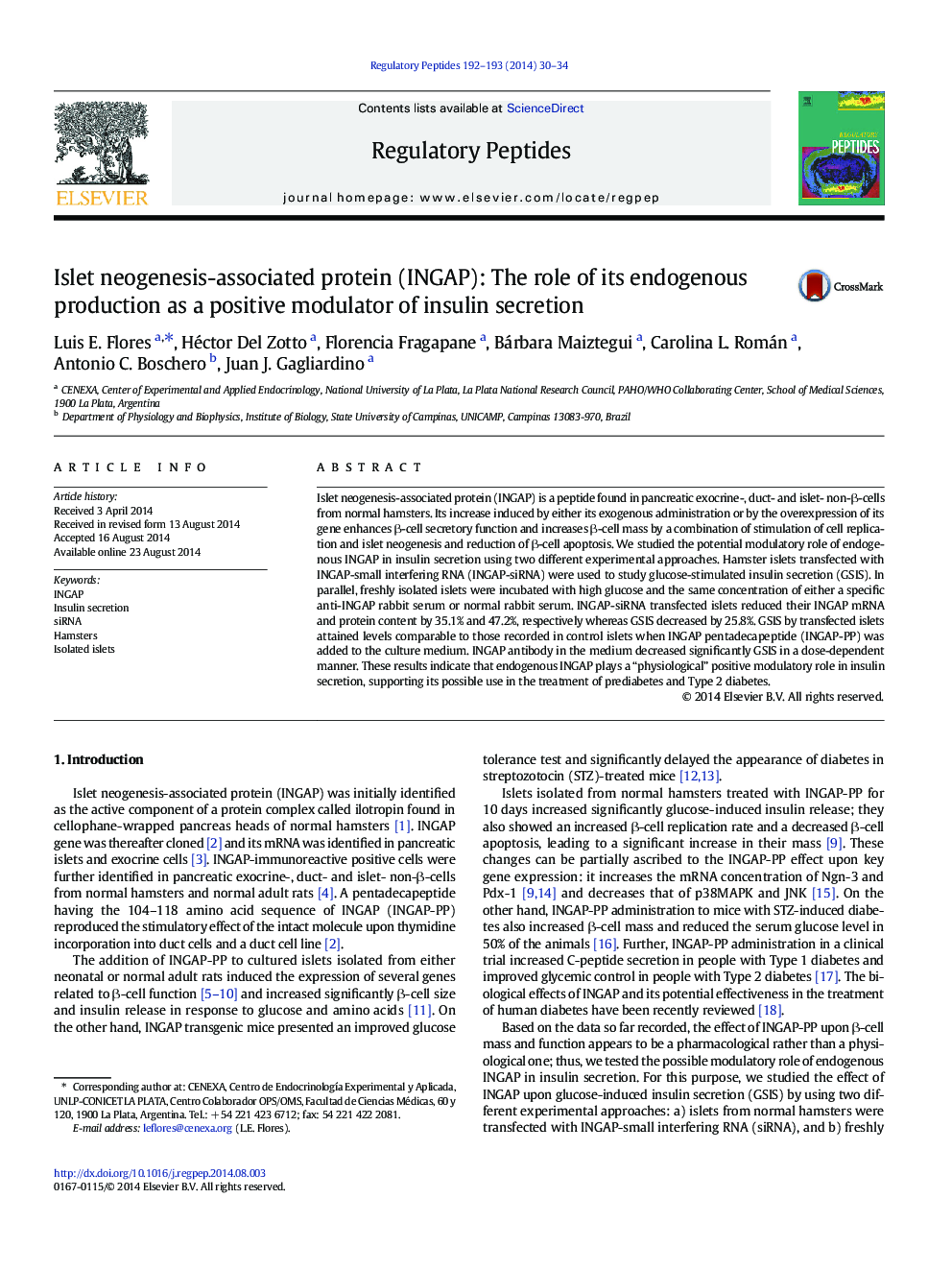| Article ID | Journal | Published Year | Pages | File Type |
|---|---|---|---|---|
| 2022403 | Regulatory Peptides | 2014 | 5 Pages |
•The impact of endogenous INGAP upon β-cell function is unknown.•INGAP mRNA and protein levels are lower in INGAP-siRNA transfected islets.•Glucose-induced insulin secretion is 26% lower in INGAP-siRNA transfected islets.•INGAP antibody inhibits insulin secretion in a dose-dependent manner.•Endogenous INGAP would play a positive modulatory role in insulin secretion.
Islet neogenesis-associated protein (INGAP) is a peptide found in pancreatic exocrine-, duct- and islet- non-β-cells from normal hamsters. Its increase induced by either its exogenous administration or by the overexpression of its gene enhances β-cell secretory function and increases β-cell mass by a combination of stimulation of cell replication and islet neogenesis and reduction of β-cell apoptosis. We studied the potential modulatory role of endogenous INGAP in insulin secretion using two different experimental approaches. Hamster islets transfected with INGAP-small interfering RNA (INGAP-siRNA) were used to study glucose-stimulated insulin secretion (GSIS). In parallel, freshly isolated islets were incubated with high glucose and the same concentration of either a specific anti-INGAP rabbit serum or normal rabbit serum. INGAP-siRNA transfected islets reduced their INGAP mRNA and protein content by 35.1% and 47.2%, respectively whereas GSIS decreased by 25.8%. GSIS by transfected islets attained levels comparable to those recorded in control islets when INGAP pentadecapeptide (INGAP-PP) was added to the culture medium. INGAP antibody in the medium decreased significantly GSIS in a dose-dependent manner. These results indicate that endogenous INGAP plays a “physiological” positive modulatory role in insulin secretion, supporting its possible use in the treatment of prediabetes and Type 2 diabetes.
